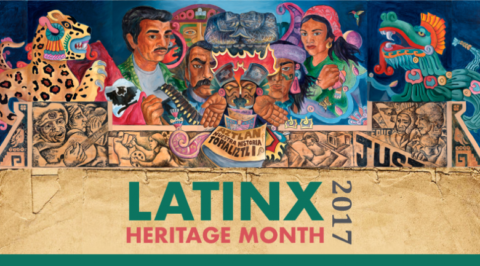Kings and Generals
Published 20 Feb 2020Our new animated historical documentary talks about the Etruscans. Their origins, culture, religion, lifestyle and how they influenced the Roman Republic and through it the world.
Support us on Patreon: http://www.patreon.com/KingsandGenerals or Paypal: http://paypal.me/kingsandgenerals
We are grateful to our patrons and sponsors, who made this video possible: https://docs.google.com/document/d/1_…
The video was made by our friend András Szente-Dzsida while the script was researched and written by Leo Stone
This video was narrated by Officially Devin (https://www.youtube.com/user/OfficiallyDevin)
✔ Merch store ► teespring.com/stores/kingsandgenerals
✔ Podcast ► Google Play: http://bit.ly/2QDF7y0 iTunes: https://apple.co/2QTuMNG
✔ Twitter ► https://twitter.com/KingsGenerals
✔ Instagram ► http://www.instagram.com/Kings_GeneralsProduction Music courtesy of Epidemic Sound: http://www.epidemicsound.com
#Documentary #Etruscans #KingsandGenerals
June 21, 2021
Etruscans: Italian Civilization Before Ancient Rome
June 11, 2021
Latin and Greek are the next sacrifices to the great god Antiracism
In the latest edition of It Bears Mentioning, John McWhorter considers the Princeton University classics department decision to get rid of the requirement for students to read classic texts in the original languages:

“USA – New Jersey – Princeton” by Harshil.Shah is licensed under CC BY-ND 2.0
I have written recently about the Princeton classics department’s decision to eliminate the requirement that students engaging closely with Latin and Greek texts be able to … read them in Latin and Greek. The new idea is that the department will attract more majors by opening up to ideas from students who may be full of beans but just not inclined to tackle complex, ancient languages. And sub rosa, the idea is clearly – as we can see from words in the official statement like underrepresented, perspectives, and experiences – that of especial interest will be black students, especially in light of today’s racial reckoning which the department openly acknowledges was the primary spur for this change.
My disappointment with this decision is because it is part of a tradition of arguments that we do black people a favor by exempting them from certain kinds of faceless, put-up-or-shut-up challenges to entry. Back in the aughts, the classic example was brilliant, fierce black lawyers confidently arguing that because black firefighter applicants don’t do as well on the entrance exams required for the job, the exams are racist and should be eliminated. More recently there has been the idea that if black kids are rare at top-ranked public schools in New York City like Stuyvesant because few excel on the standardized test one must ace to be admitted, then the solution is to eliminate the test as “racist”. The Princeton decision is a variation: to get black kids into classics, it’s supposedly immoral to expect them to master the intricacies of Latin and Greek, languages which I suppose we can see as foreign, “white” to them as well. Rather, they must be admitted in shining expectation that their class comments will be bracingly “diverse” in good old English.
My Atlantic colleague Graeme Wood is more sanguine about the Princeton decision. He argues sagely that a certain kind of student happens to enjoy working their way through languages like Latin as a kind of puzzle (I openly admit being that type), but that there are others who don’t go in for that particular task and yet are itching and well-equipped to engage and analyze classical texts regardless. Graeme notes that we do not consider it an educational tragedy that specialists in English history are not required to be able to read Old English. (Although I wonder if this analogy would hold if the idea were someone specializing in England of the first millennium, where all of the relevant linguistic matter was in Old English [and Latin].)
I can go with him here to an extent. On the one hand, as I have argued here, to engage work only in translation is, of course, to lose a lot. Yet, in making that argument here, I was referring to my own reading War and Peace in English, as I myself was not inclined to hack through it in Russian (although my being black was not the reason for this disinclination [couldn’t help it!]). The question is how important we consider that loss to be.
Having no facility in languages myself, I’m more sympathetic to the students’ viewpoint than I might otherwise be, but depending on someone else’s translation of the text being studied has unexpected risks, as Sarah Hoyt explained from her own translation studies:
The discussion […] reminded me of when I was sixteen and embarked on a class called “Techniques of Translation”.
Although I had studied French and English and German, the translations I’d done so far were of the “I took the pen of my neighbor” variety. I thought the class would teach me to smooth out the sentence to “I took my neighbor’s pen” and that would be that.
I was wrong. Oh, it taught that also, but that was a minor portion of it. The class mostly hinged on the moral, ethical and — most of all — professional dilemmas of being a translator. I know any number of you are translators, formal or informal, but any number of you are also not. So, for the ones who are not, let me break the news with my usual gentleness:
There is no such thing as translation.
The French have a proverb “to translate is to betray a little” — or at least that’s the closest meaning in English. It’s fairly close to the true meaning, but slightly askew, of course. Every language is slightly askew to other languages.
The idea that there exists in every language a word that is exactly the equivalent of other languages is sort of like assuming that aliens will — of course — live in houses, go to school, ride buses, understand Rebecca Black’s “Friday”. [This was originally written in 2011.]
Language is how we organize our thoughts, and each word, no matter how simple, carries with it the cultural freight and experience of the specific language. Oh, “mother” will generally mean “the one who gave birth to” — except for some tribal, insular cultures where it might mean “the one who calls me by her name” or “my father’s principal wife” — but the “feel” behind it will be different, depending on the images associated with “mother” in the culture.
So, when you translate, you’re actually performing a function as a bridge. Translation is not the straightforward affair it seems to be but a dialogue between the original language and the language you translate into. If you’re lucky, you meet halfway. Sometimes that’s not possible, and you feel really guilty about “lying” to the people receiving the translation. When on top of language you need to integrate different cultures and living systems (which you do when translating anything even an ad) you feel even more guilty, because you’re going to betray, no matter how much you try. At one point, a while back, I had my dad on one phone, my husband on the other, and I was doing rapid-fire translation about a relatively straight forward matter. And even that caused me pangs in conscience, because my dad simply doesn’t understand how things are done here. I had to approach his experience and explain our experience in a way he wouldn’t think I was insane or explaining badly. That meant a thousand minor lies.
June 6, 2021
George Orwell’s “Politics And The English Language” remains the best guide to writing non-fiction
Despite pulling most of his writing behind a paywall, I still get the occasional “Weekly Dish” post excerpt from Andrew Sullivan, including his homage to the still-relevant Orwell essay “Politics and the English Language”:
From time to time, I make sure to re-read George Orwell’s classic essay, “Politics And The English Language“. It remains the best guide to writing non-fiction, and it usually prompts a wave of self-loathing even more piercing than my habitual kind. What it shows so brilliantly is how language itself is central to politics, that clarity is as hard as it is vital, and that blather is as lazy as it is dangerous. It’s dangerous because the relationship between our words and our politics goes both ways: “[The English language] becomes ugly and inaccurate because our thoughts are foolish, but the slovenliness of our language makes it easier for us to have foolish thoughts”. We create language and language creates us. If the language is corrupted, so are we.
Near the end of the essay, Orwell lists a few rules to keep writing clear, accessible and meaningful:
i. Never use a metaphor, simile or other figure of speech which you are used to seeing in print.
ii. Never use a long word where a short one will do.
iii. If it is possible to cut a word out, always cut it out.
iv. Never use the passive where you can use the active.
v. Never use a foreign phrase, a scientific word or a jargon word if you can think of an everyday English equivalent.
vi. Break any of these rules sooner than say anything outright barbarous.
Originality, simplicity, brevity, active verbs, everyday language, decency: as simple as it is very, very hard. It’s a relief in a way to recall that Orwell thought things were pretty damn shitty in his day as well, but the more you read broadly across most elite media platforms these days, the more similar it all sounds. To reverse Orwell’s virtues: so much of it is repetition, complexity, length, passive verbs, endless jargon, barbarism.
I was just reading about the panic that occurred in the American Medical Association, when their journal’s deputy editor argued on a podcast that socio-economic factors were more significant in poor outcomes for non-whites than “structural racism”. As you might imagine, any kind of questioning of this orthodoxy required the defenestration of the deputy editor and the resignation of the editor-in-chief. The episode was withdrawn from public viewing, and the top editor replaced it with a Maoist apology/confession before he accepted his own fate.
But I was most struck by the statement put out in response by a group called “The Institute for Antiracism in Medicine”. Here it is:
The podcast and associated promotional message are extremely problematic for minoritized members of our medical community. Racism was created with intention and must therefore be undone with intention. Structural racism has deeply permeated the field of medicine and must be actively dissolved through proper antiracist education and purposeful equitable policy creation. The delivery of messages suggesting that racism is non-existent and therefore non-problematic within the medical field is harmful to both our underrepresented minoritized physicians and the marginalized communities served in this country.
Consider the language for a moment. I don’t want to single out this group — they are merely representative of countless others, all engaged in the recitation of certain doctrines, and I just want an example. But I do want to say that this paragraph is effectively dead, drained of almost any meaning, nailed to the perch of pious pabulum. It is prose, in Orwell’s words, that “consists less and less of words chosen for the sake of their meaning, and more and more of phrases tacked together like the sections of a prefabricated hen-house.”
It is chock-full of long, compounded nouns and adjectives, riddled with the passive voice, lurching and leaning, like a passenger walking the aisle on a moving train, on pre-packaged phrases to keep itself going.
Notice the unnecessary longevity: a tweet becomes an “associated promotional message”. Notice the deadness of the neologisms: “minoritized”, “marginalized”, “non-problematic”. As Orwell noted: “the normal way of coining a new word is to use a Latin or Greek root with the appropriate affix and, where necessary, the -ize formation. It is often easier to make up words of this kind (deregionalize, impermissible, extramarital, non-fragmentatory and so forth) than to think up the English words that will cover one’s meaning.” Go back and see if you can put the words “minoritized” or “non-problematic” into everyday English.
Part of the goal of this is political, of course. The more you repeat words like “proper antiracist education” or “systemic racism” or “racial inequity” or “lived experience” or “heteronormativity”, the more they become part of the landscape of words, designed to dull one’s curiosity about what on earth any of them can possible mean. A mass of ideological abstractions, in Orwell’s words, “falls upon the facts like soft snow, blurring the outlines and covering up all the details.”
Then this: “Racism was created with intention.” Abstract noun, passive voice, vague meaning. Who “created” it? What was the intention exactly? Hasn’t racist tribalism been a feature of human society for tens of thousands of years? They never say. Or this phrase: “purposeful equitable policy creation”. Again: what are they talking about? It is as vague as “doing the work” — and as deliberate as the use of a highly contested term like “structural racism” to define objective reality. These are phrases not designed to say anything real. They are phrases designed to send a message of orthodoxy, and, as Orwell also noted, “orthodoxy, of whatever colour, seems to demand a lifeless, imitative style”. Try reading Slate or Vox or the Huffington Post: the tedium you feel is the tedium of a language rendered lifeless by ideology.
May 31, 2021
“For four generations our culture and education has been in the hands of an unholy hybrid of Marxism and Rousseau’s Romanticism”
In the most recent edition of the Libertarian Enterprise, Sarah Hoyt regrets not learning some traditional — manual — skills when she was younger, and how children today are even worse served by the education system:
… there are are other things. I mean, husband and I to an extent were thrown in to the world with no clue how to do the most basic things, like home maintenance or how to clean with proper products, how to take care of clothes, how to do anything with our savings other than let it sit in the bank, how to organize and sort files and records. It goes on. (I do still tend to use bleach for most things. It’s cheap. I have at least learned what it will damage.) Our first ten years of marriage would make a good sitcom, as they had a repeating pattern: figure out we need to do something; extrapolate how it can be done; invest untold amount of time and effort into doing thing; find out after that it can be done in a simpler and cheaper way. And then people wonder why I curse.
And so many times, we just come up on something that must be done — even now — and have no clue how to get to the place where we can even think about how to do it. Teaching the kids what we never learned has been fun, too.
Heck, even in my religion — and I taught it was a young woman — I keep coming across these massive gaps where no one ever taught me what to do or why. As for the education my kids got: pfui.
In the same way, I’ve spent most of my adult life learning history, grammar, natural science and the basics of things that I supposedly learned the advanced form for with my degree, but without anyone ever teaching me the fundamentals.
Kind of like part of my degree is the study of literature but until I read Dwight Swain’s Techniques of the Selling Writer I’d never realized that books are composed of conflict and reaction units. (No, not physical conflict, though heck, you could sell that.) Instead I tried to fit them into the structure of plays and wondered why it wasn’t working.
Because no one had ever taught me the basics. I mean, I knew how to do a lot of advanced things, even as a beginning writer. I just had no clue how to do the basic things. And it showed.
For four generations our culture and education has been in the hands of an unholy hybrid of Marxism and Rousseau’s Romanticism. (The two are related in that both believe that natural man left to his own devices creates paradise.)
I can understand how those scarred by the long war of the 20th century would decide that they were going to ditch all the evil bad things in civilization and let the children grow up “naturally” so they would be sweet and innocent angels. (Spit.) I understand but I don’t forgive. If they thought what they saw in the war was the result of Western Civilization, they’d never studied other civilizations or for that matter hid in a playground and watched the children be “natural”.
Then the cascade started. People who only half learned could only half teach. On top of which the doubts instilled in them about the purpose of civilization made them teach less than half. And the next generation knew less. And then less.
More than once, as an inquisitive student, I’d go to my teacher and ask why something worked the way it did or didn’t work the way they said, only to be given a glib explanation I knew was wrong. I must have been 11 the first time I realized the teacher had no more clue than I did. (This was a good thing. It set me on a path of researching and investigating on my own.)
By the time my kids were in school it had become more so, partly because to justify themselves, and abate the feeling they were incompetent, people derived entire theories on why they shouldn’t learn the basics, learning the basics was bad, and you could be so much better by learning naturally.
I don’t have enough words to revile the “immersion” method of language learning, particularly was applied in our schools. Yes, sure “but the military used it” – yeah, but the military could enforce LIVING in the language. It also — which seems to elude most people — does teach people grammar and vocabulary in formal classroom settings.
[…]
Part of the unlearning are people who never learned enough to realize what works and what doesn’t trying to do things in ways that only work for a very few highly gifted individuals. That’s how we got whole word, new math, total immersion, whateverthehelltheyretryingnow all of which involved “less work for teachers” and the vague hope that unschooled children, or children who learned “naturally” were just somehow “better”.
Kind of like what would happen if I decided my digit dyslexic, half-baked way with wood meant my making, say, a table that was lopsided and wobbly made the table better and more authentic.
May 30, 2021
New frontiers in cultural appropriation
John McWhorter considers the notion that white people shouldn’t be allowed to use “black” words and phrases because it’s a form of cultural appropriation and therefore another aspect of white supremacy:
A little while ago, a Saturday Night Live skit depicted a multiracial group of teens communicating in what was depicted as “Gen Z slang”, with the doctor they were talking with having to “translate” his thoughts into it to communicate with them.
A lot of people didn’t like it, because the slang in question was mostly of Black English origin. The complaint is that the skit was denying the black roots of these terms, and instead ascribing them to Americans in general – i.e. (shudder) white persons. As in, yes – the problem was cultural appropriation.
As I write, there are still people grousing on social media in the wake of that skit about whites “stealing” black language, with a leitmotif being that we should apply our N-word taboo more widely. To wit, many propose that whites should not be allowed to use Black English terms because they are “ours”. Many who haven’t outright proposed this give the notion Likes, which suggests that a considerable group of people – and from what I can see, quite a few of them are white – concur with this line of reasoning.
Let’s break this down. To do so we must understand the sorts of terms in question. The SNL skit included, among others, yo, bestie, vibes, feels for feelings, salty for irritated, bro / bruh and no cap for “I’m not kidding” (as in, these are actual whole gold teeth, not golden caps on teeth).
Is there a case that you should only use these terms if you’re black, or that if you use them as a white person you should “do the work” of thinking hard about whether or not it is problematic (blasphemous)?
May 25, 2021
“Latinx”
At Ace of Spades H.Q., Buck Throckmorton explains why “Latinx” is a silly word-like mouthing that we should not encourage anyone to use:
“Latinx” is a white supremacist term used by racist, left-wing Americans to marginalize Spanish speakers and to disparage their culture.
The term “Latinx” itself is overtly racist. Not only is Latinx not a Spanish word, it can’t even be pronounced in Spanish. How offensively paternalistic maternalistic mxternxlistic(?) is it of liberal, white Americans to rip the identity from brown-skinned people, and then impose on them a new identity, which is an unpronounceable collection of consonants … and THEN demand that Hispanics identify by this new, unpronounceable English word.
One of the embarrassing bigotries of left-wing, monolingual, white supremacists is that they are oblivious to the fact that the entire Spanish language is gendered. Because of their racist ignorance of the Spanish language, they don’t understand that the gender of a noun is indicated by the definite article (“el” / “la” ) or the indefinite article (“un” / “una” ) more so than if a word ends in “a” instead of “o”.
American lefties have changed exactly one Spanish word to gender-neutral, and with that done, they now demand that Spanish speakers somehow converse like weird, left-wing English-speakers and remove all gender from their speech. This simply isn’t possible in Spanish. So, in effect left-wing white supremacists are shaming Spanish language speakers for using their native language. I can’t believe such ugly bigotry exists in 21st Century America.
In addition, by imposing the transsexual term “Latinx” on all Hispanics, left-wing whites are asserting that all Hispanics are transsexuals, which could be culturally insulting. A liberal, white American woman may think she is complimenting an Hispanic man by telling him that she sees him as no different than a castrated cross-dresser, but he probably won’t take it as a compliment. But to be fair, most of the men in the orbit of woke white women would be flattered to be thought of that way.
May 10, 2021
QotD: Against the notion of the “Social Contract”
As a modern conservative, [Roger] Scruton defends a form of democracy unknown to Aristotle. Following David Hume and Edmund Burke, however, he opposes the idea that the “political order is founded on a contract.” For Scruton, the state of nature is a chimera — an invention of modern political philosophers who had forgotten the debt and gratitude owed to our predecessors. The fictitious state of nature — so central to philosophical liberalism — obscures the fact that membership in a community, with its requisite duties and obligations, is a precondition for meaningful freedom. “Absolute freedom” — doing whatever one wants — is always an invitation to anarchy or tyranny. In the modern world, the nation is the political form that guarantees membership and self-government.
In all of his political writings, Scruton takes on the Left for scorning existing norms and customs, and for promoting a “culture of repudiation.” The Left is “negative.” It dismisses “every aspect of our cultural capital” with the language of brutal invective: accusing every defender of human nature and sound tradition of “racism,” “xenophobia,” “homophobia,” and “sexism.” Like 1984‘s “two minutes of hate,” this language tears down, intimidates, and can never build anything humane or constructive — it is nihilistic to the core. At the same time, Scruton wants to reach out to reasonable liberals who eschew ideology and who still believe in civility and the promise of national belonging. His conservatism can discern the truth in liberalism (another Aristotelian trait) while the partisans of repudiation see half the human race as enemies.
Daniel J. Mahoney, “Beyond the Culture of Repudiation”, Claremont Review of Books, 2018-06.
May 4, 2021
Our modern verbal taboos
John McWhorter tackles the dreaded “N-word” — perhaps the most powerful taboo word in our current quasi-religious culture:
The question is why we have become so extremely sensitive about that word since the 1990s, despite that our times are so much further from the ones where whites casually levelled the term with abandon. Why are we making a finger-cross and hanging garlic in the doorway against even any semblance or suggestion of a sequence of sounds?
Supposedly because the word recalls slavery, Jim Crow and horrific abuses. But then, even black people just a few decades ago didn’t typically think this meant that one cannot utter the word even to refer to it. That’s new, and it is, quite simply, a taboo — as in what we associate with societies vastly different from our own.
There are languages in Australia where you use a separate vocabulary with your mother-in-law, and it is taboo to use the regular word equivalents for it with her. In one of the languages, there is a general word for moving that you use when talking to your mother-in-law about going, walking, sailing and crawling. To use the regular words for these things with her would be like hauling off with a curse word in English.
This sounds quaint to us, but should not, because our treatment of the N-word is hardly different. The idea that the word is simply never to be uttered is so deeply entrenched now that it may seem odd to many people under about 40 that in times that seemed quite modern not so long ago, one could produce the sounds of the word nigger in public if you were talking about it rather than using it. With taste, of course — one didn’t go about saying it over and over. But there was an understanding that to refer to it — especially since this was usually in condemnation — was harmless. Because it was.
If you think about it, this made perfect sense. It’s today’s situation that is odd, in that suddenly we have a taboo of a kind we associate with pre-scientific indigenous societies. The word must be chased away whenever it seeps in through the cracks in the floor, just as if you pick up the phone and the Devil is on the line, you hang up. To wit, this is more evidence that Electness is a religion. The evolution in sensibility about the N-word has been an early manifestation of Elect ideology, penetrating so quickly because of the especially loaded nature of the word. It’s pretty easy to classify it as heresy for saying a word that is used as a slur; getting people fired for saying reverse racism — as happened to former San Francisco Museum of Modern Art Gary Garrels — takes a while.
Some will despise that I am calling the new take on the word pious. But 25 years ago we all knew exactly those things about the word’s heritage, and felt modern and enlightened to, with sensible moderation, utter the word in reference rather than gesture. Under normal conditions, the etiquette would have stayed at that point. The only thing that makes that take on the word now seem backwards is a sense of outright “cover-your-mouth” taboo: i.e. religion. This performative refusal to distinguish, this embrace of the mythic, shows a take on the N-word analogous to taking the Lord’s name in vain.
I call this refusal performative — i.e. a put-on — because I simply cannot believe that so many people do not see the difference between using a word as a weapon and referring to the word in the abstract. I would be disrespecting them to suppose that they don’t get this difference between, say, Fuck! as something yelled and fuck as in a word referring to sexual intercourse. They understand the difference, but see some larger value in pretending that it doesn’t exist.
In my experience, a common idea is that if we allow the word to be used in reference, there is a slippery slope from there to whites feeling comfortable hurling the slur as well. There are two problems with this point. One: for decades civilized people could use the word in reference, and yet there was no sign of the epithet coming back into style. Today’s crusaders can’t claim to be holding off some rising tide. Second: what is the sociohistorical parallel? At what point in human history has a slur been proscribed, but then returned to general usage because it was considered okay to refer to the word as opposed to use it? That many people can just imagine this happening with the N-word is not an argument, especially since it’s hard not to notice that this hypothetical scenario fits so cozily into their professionally Manichaean take on race.
QotD: DOUBLETHINK
This demands a continuous alteration of the past, made possible by the system of thought which really embraces all the rest, and which is known in Newspeak as DOUBLETHINK.
The alteration of the past is necessary for two reasons, one of which is subsidiary and, so to speak, precautionary. The subsidiary reason is that the Party member, like the proletarian, tolerates present-day conditions partly because he has no standards of comparison … This day-to-day falsification of the past, carried out by the Ministry of Truth, is as necessary to the stability of the regime as the work of repression and espionage carried out by the Ministry of Love.
The mutability of the past is the central tenet of Ingsoc. Past events, it is argued, have no objective existence, but survive only in written records and in human memories. The past is whatever the records and the memories agree upon. And since the Party is in full control of all records and in equally full control of the minds of its members, it follows that the past is whatever the Party chooses to make it. It also follows that though the past is alterable, it never has been altered in any specific instance. For when it has been recreated in whatever shape is needed at the moment, then this new version IS the past, and no different past can ever have existed … It is also necessary to REMEMBER that events happened in the desired manner. And if it is necessary to rearrange one’s memories or to tamper with written records, then it is necessary to FORGET that one has done so. The trick of doing this can be learned like any other mental technique. It is learned by the majority of Party members, and certainly by all who are intelligent as well as orthodox. In Oldspeak it is called, quite frankly, “reality control”. In Newspeak it is called DOUBLETHINK.
George Orwell, Nineteen Eighty-Four, 1949.
April 26, 2021
QotD: Maple-flavoured schadenfreude
Schadenfreude is of course the German word for taking pleasure in the discomfort of others. There should be a specific Canadian variant to indicate our enjoyment of Americans’ discomfort, which is and always has been a major source of satisfaction for many of our media elites. Maybe schadenfreud-eh?
William Watson, “Smug Canada probably wouldn’t let in a caravan of migrants either”, Financial Post, 2018-10-26.
March 14, 2021
QotD: “Logomachia” – the use of language as a culture war weapon
During the Summer of Floyd, I commented to an American friend that this is the first time in my adult life that I am more optimistic about France than about America. The mass derangement of wokeness has been astonishing to watch. And the response from the right has been pathetic. Now, America has driven itself into ditches before, and found deep reservoirs of self-confidence from which to draw. I would never write off America completely. But the rapidity and fanaticism with which American elites have committed themselves to a course of what can only be called civilizational suicide — a kind of anti-American jihad — has been astonishing. Certainly I hope the Europeans take the right lessons from it and, as I mentioned, it seems that French elites aren’t buying it.
One of the left’s key weapons is what the philosopher Jean-Marie Benoist called “logomachia”, or language warfare. They invent all these words and use it to shape the ideaspace in their favor. It should be obvious to anyone who doesn’t have brainworms — at this point it is even obvious to many normies — that in contemporary American discourse a word like “racism” has as much connection to phenomena in the real world as “Trotskyite” had in Russia under Stalin. So if someone says “You’re a racist!” and you respond “I’m not a racist because X and Y and Z” you have already lost because you have implicitly conceded that there is this thing out there called “racism” which is really big and bad and scary, and one that your enemies get to define for you. And it doesn’t matter that your X or Y or Z may be absolutely correct. You still lose by dignifying the accusation e.g. (“I am not part of the Trotskyite conspiracy!”). The entire thing is transparently preposterous and should be responded to appropriately, with laughter and derision.
And let’s face it, we are so eager to say “I’m not a racist!” because we’re afraid of what will happen to us if we don’t. And people can smell fear, and it’s unattractive. Be not afraid!
Niccolo Soldo, “The Zürich Interviews – Pascal-Emmanuel Gobry: Unrepentant Baguette Merchant”, Fisted by Foucault, 2020-12-02.
March 6, 2021
History-Makers: Sappho
Overly Sarcastic Productions
Published 5 Mar 2021It’s no use, dear algorithm, I cannot research, for Sappho has crushed me with longing for lost poetry!
SOURCES & Further Reading: Sappho: fragments by Jonathan Goldberg, “Girl, Interrupted: Who Was Sappho?” for The New Yorker by Daniel Mendelsohn (https://www.newyorker.com/magazine/20…), “Sappho” from The Poetry Foundation (https://www.poetryfoundation.org/poet…)
Our content is intended for teenage audiences and up.
PATREON: https://www.Patreon.com/OSP
PODCAST: https://overlysarcasticpodcast.transi…
DISCORD: https://discord.gg/osp
MERCH LINKS: http://rdbl.co/osp
OUR WEBSITE: https://www.OverlySarcasticProductions.com
Find us on Twitter https://www.Twitter.com/OSPYouTube
Find us on Reddit https://www.Reddit.com/r/OSP/
February 27, 2021
February 21, 2021
February 12, 2021
QotD: Repartee
Clever banter can only be called “repartee” if it’s from the Repartée region of France. Otherwise it’s just sparkling wit.
Daniel Hannan, Twitter, 2020-11-06.












